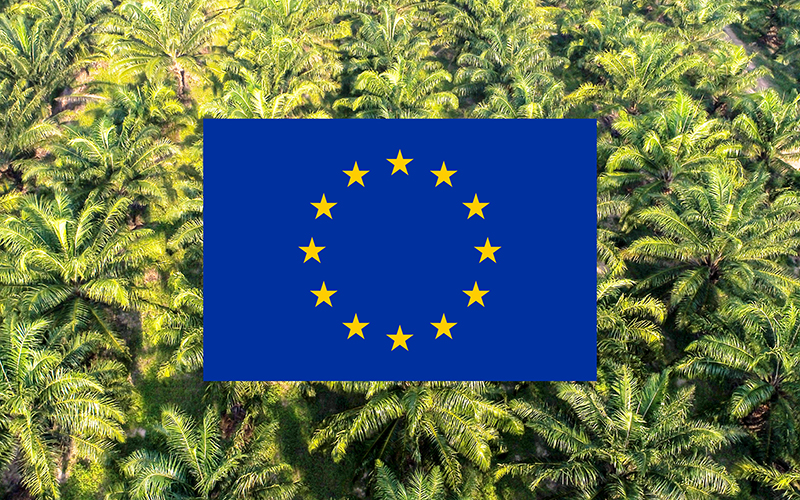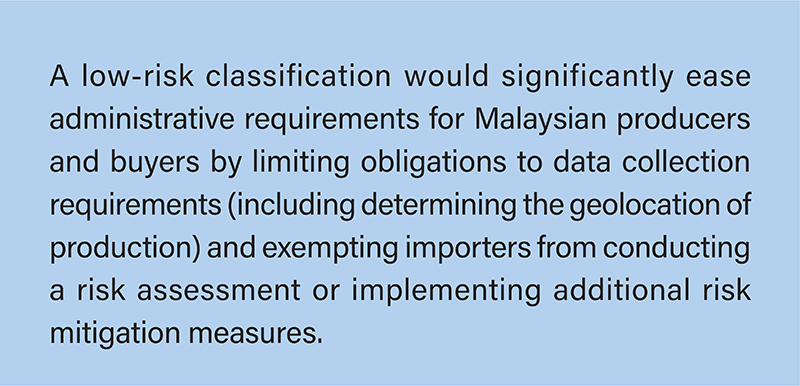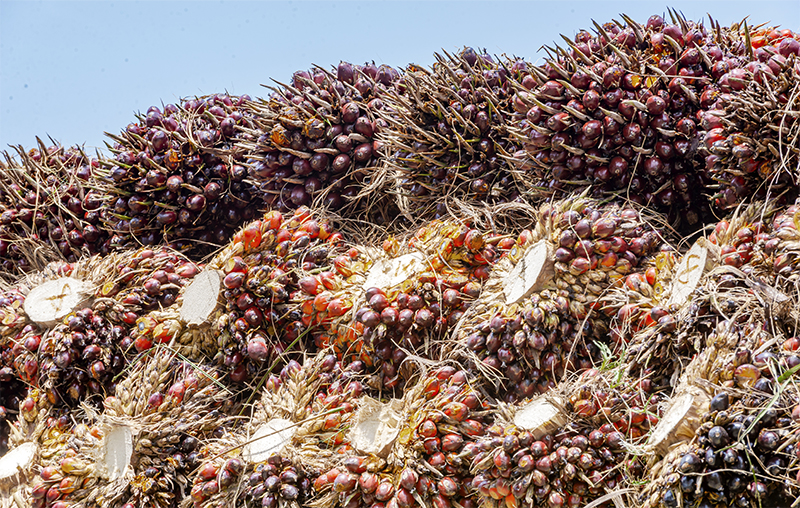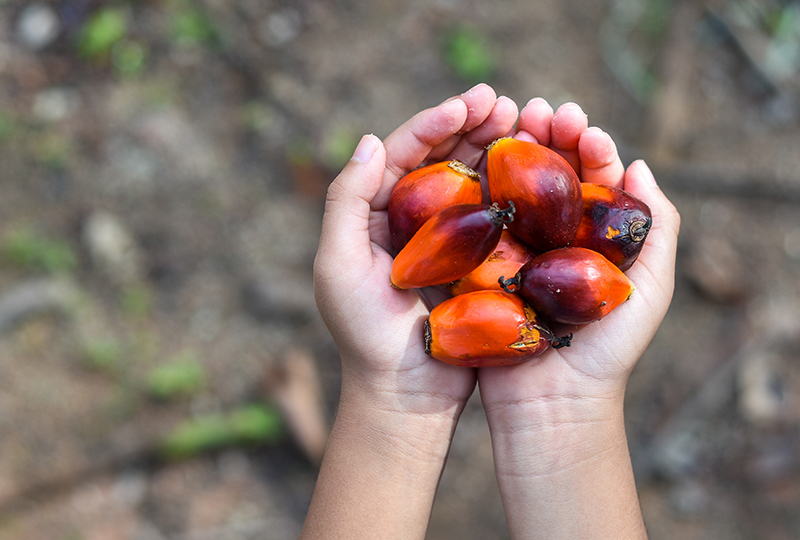EU to Decide on Malaysia’s Classification in the EUDR Country Benchmarking by June 2025
The EUDR benchmarking system will classify producer countries into low-risk, standard-risk, or high-risk countries based on the risk of deforestation.

A decision on the long-anticipated country benchmarking system under the European Union Deforestation Regulation (EUDR) is expected soon. Following the EU’s agreement to a crucial one-year postponement of the rules at the end of 2024, attention is shifting towards the start of the regulation application on 30 December 2025. From this date, the EUDR will apply to large palm oil-importing companies in the EU, allowing only palm oil not produced on land subject to deforestation after the 31 December 2020 cut-off date and legally produced to enter the EU market. Governed by one of the world’s most stringent palm oil sustainability certification schemes, Malaysia is well-prepared to supply sustainable and traceable EUDR-compliant palm oil to its European customers.
With the EU providing legal certainty last year, Malaysian palm oil producers now have a clear timeline and clarity on data collection and due diligence requirements. However, one critical decision still needs to be taken before the end of the year - the classification of countries under the EUDR benchmarking system. This system will categorise producer countries into low-risk, standard-risk, or high-risk countries based on the risk of deforestation.

The European Commission (EC) recently reaffirmed its commitment to delivering the benchmarking system by 30 June 2025, meaning a decision can be expected within the next two months. However, several key concerns remain unresolved from Malaysia’s perspective. In its preliminary principles released last year, the EC indicated that most countries will be classified as low-risk. However, it failed to clearly outline how the benchmarking exercise would be conducted. While the classification relies primarily on absolute and relative deforestation data, questions persist about the quantitative threshold distinguishing low-risk countries from standard-risk countries and the timeframe over which deforestation rates will be assessed.

Malaysia is well-prepared to supply sustainable and traceable EUDR-compliant palm oil to the EU market.
The Malaysian Palm Oil Council (MPOC) has strongly advocated for Malaysia’s classification as a low-risk country. Several international organisations including the United Nations Food and Agriculture Organisation (FAO) and the World Resources Institute, have recently documented a significant decline in forest loss in Malaysia. Palm oil is no longer a driver of deforestation in the country, and the Malaysian Sustainable Palm Oil (MSPO) certification scheme effectively prohibits deforestation for palm oil production after 2019.
The EC must consider these recent trends in its decision. Granting Malaysia a low-risk status would recognise its efforts and encourage other palm oil-producing countries to follow Malaysia’s pathway in reducing forest loss. Ultimately, the EU must make the development of the classification system as transparent as possible and open to stakeholder input from third countries. Only under these conditions will the eventual ranking secure broad acceptance.

The MPOC has strongly advocated Malaysia’s low-risk country classification, with apparent efforts from the MSPO certification scheme that effectively prohibits deforestation for palm oil production since 2019.



